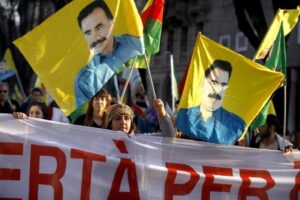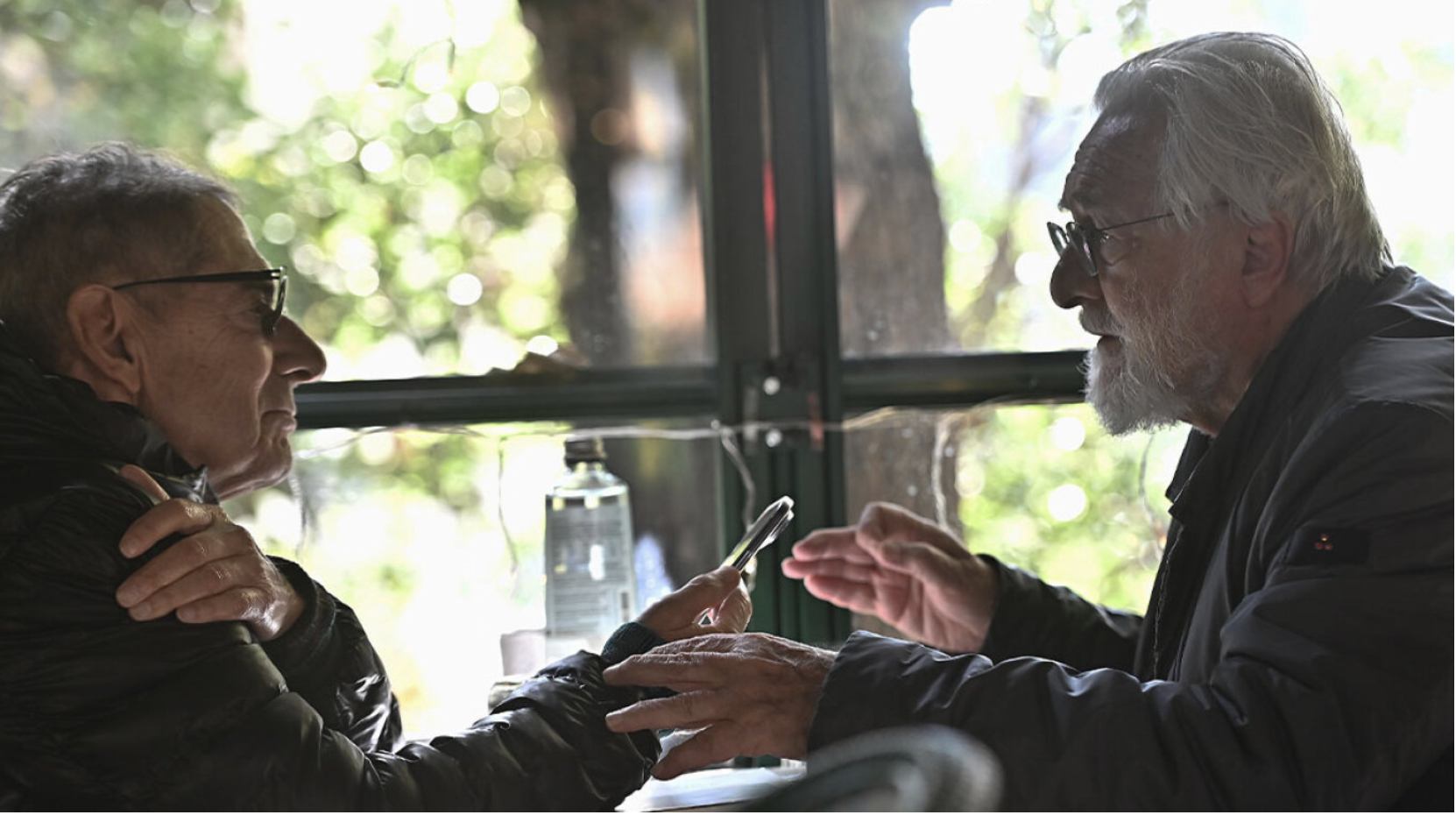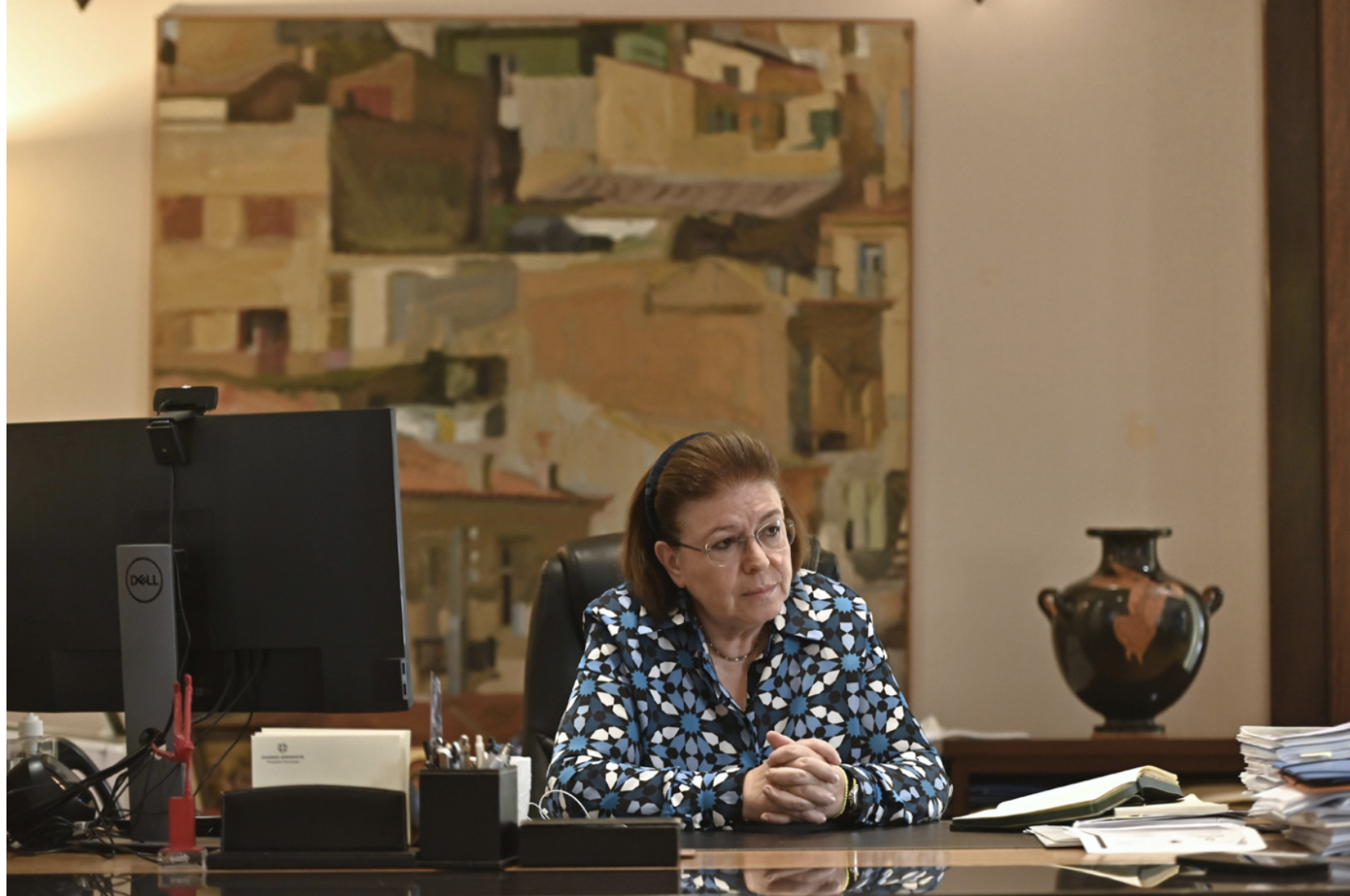Yesterday’s terrorist attack in Ankara, which left five dead and more than 20 wounded, came just hours after Erdoğan’s far-right partner, Bakhcheli, was installed as a bombshell, that Abdullah Öcalan, the historic Turkish leader of the PKK, might even address the Turkish National Assembly if he publicly condemned terrorism and declared that the party he serves even while incarcerated was being dismantled.
Minutes after the attack, the first security camera footage “flooded” social media, and on the whole, the media in Türkiye paid particular attention to the woman who, brandishing her semi-automatic weapon, wreaked terror and death in Ankara. Almost in perfect coordination with the leak-publication of plans critical to the Turkish anti-terrorism service’s investigations, senior government officials – officially and not through their entourage – spoke of members of the PKK. The image of the female terrorist immediately became a pillar of this narrative. Türkiye‘s fighter jets, the country’s defense ministry officially announced, struck dozens of PKK positions in Syria and Iraq yesterday.
Today, a few hours after the bloodbath in Ankara and the shock to the Turkish public, another “coincidence” has been added to the two aforementioned ones. Öcalan, imprisoned since 1999 on Imrali Island in the Sea of Marmara, south of Istanbul, was visited by a member of his family. The visit is in fact the first for Öcalan since March 2020…
The coincidences are already three, and consecutive ones within a short period of time, not to raise legitimate questions.
Turkish expansionism and Kurdish lands
To make the foggy landscape behind this particular web of coincidences a little clearer, we should refer to the situation that Türkiye has “built” over the past five years – although there is an even longer history – on its borders with Syria and also Iraq.
Since 2019, Türkiye has been invading the territories of northeastern Syria with Operation Fountain of Peace. This was the third operation of the same purpose and objectives, following “Euphrates Shield” in 2016 and “Branch of Elah” in 2018. Türkiye‘s goal, according to the Turkish president, was to eliminate PKK cells targeting Turkish regions.
For Türkiye and the West, Kurdish militants are on the list of terrorist organizations, and Tayyip Erdoğan has warned dozens of times in the past that his country’s goal is to eliminate them. In the 2019 operation, Türkiye attempted to take possession of a 480-kilometer-long and 30-kilometer-deep area, which it had stressed would not be settled but Ankara would resettle some of the millions of Syrian refugees who have been on its soil since the start of the civil war in their country.
Much of that area is now controlled by Türkiye which has never transported refugees to the site but soldiers reinforcing its presence there. The US stance on this issue was also contradictory with then President Trump calling for and eventually withdrawing US forces from the area, which until then had a significant number of bases and personnel.
Today, despite the change in the attitude of the US regarding Türkiye‘s claims in the region with the arrival of Joe Biden in the Oval Office in 2021, Ankara’s forces still occupy the same territories in the region. It is again the Biden administration, as in the raging crisis in the Middle East though, that seems to be pushing now at the end of the U.S. president’s term for some kind of development.
Tayyip Erdoğan has set specific conditions to all sides and as the man who has been shaping his country’s foreign policy for decades, he seems to have decided to find a path to understanding with Washington. The “appeals” from Bahçeli to the Kurdish leader is a move that Öcalan cannot accept, as it would betray his ideas by shaking the hand of the Grey Wolves. The issue for Ankara is to provide evidence to the US of the “righteousness” of its struggle and bombing, especially at a time when the world’s most powerful country has made several compromises with Israel on the same level.
Ask me anything
Explore related questions





